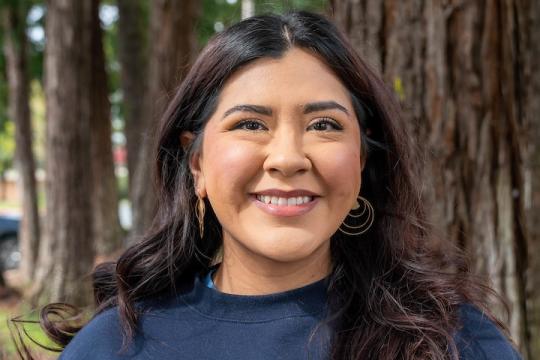Stacie Rodriguez-Fitch

Pronouns:
She/Ella
Department:
Seawolf Scholars & Educational Opportunity Program
How did you end up going into your current role or field and what do you enjoy most about the work you do?
After graduating from Sonoma State in 2017, I pursued an interest in social work and spent two years working at a residential treatment facility. During that time, I found myself at a crossroads—torn between continuing in social work or returning to higher education. I realized I missed supporting students, helping them build community, and creating spaces where they could thrive. Now, in my role at Sonoma State, I truly love the community we’ve built in Seawolf Scholars. Connecting with students, celebrating their successes, and navigating challenges alongside them keeps me motivated. I get to be creative, ask meaningful questions, and help students take their next steps—academically, personally, or professionally.
What do you enjoy most about being part of the Sonoma State community?
One thing I appreciate most about Sonoma State is the support I’ve received from colleagues across campus. As a newer staff member, I’ve been able to walk into different offices, ask questions, and immediately be met with guidance and collaboration. That openness has helped me better advocate for students and navigate campus processes with them. I also love the team I work with. Building up Seawolf Scholars and strengthening our EOP team has been incredibly rewarding. Whether it’s brainstorming ways to better support students or simply showing up for one another, I value the relationships I’ve built here.
What do you find most fulfilling about working in higher education?
My students come from a range of backgrounds—former foster youth, guardianship/kinship care, emancipated minors, wards of the court, independent by appeal, and students who have experienced housing insecurity. While my role centers on academic advising, it goes far beyond that. I help students build independent living skills, manage time, advocate for themselves, and balance school, work, and life. I aim to break down barriers—connecting them to resources, advocating for their needs, or teaching how to write a professional email. I want students to feel seen, supported, and empowered to define success on their terms.
In what ways does your work make an impact on students, the campus or the broader campus community?
As a first-gen, low-income college grad, I remember how hard it was to navigate a system not built with me in mind. Now I get to be the person so many were for me.

